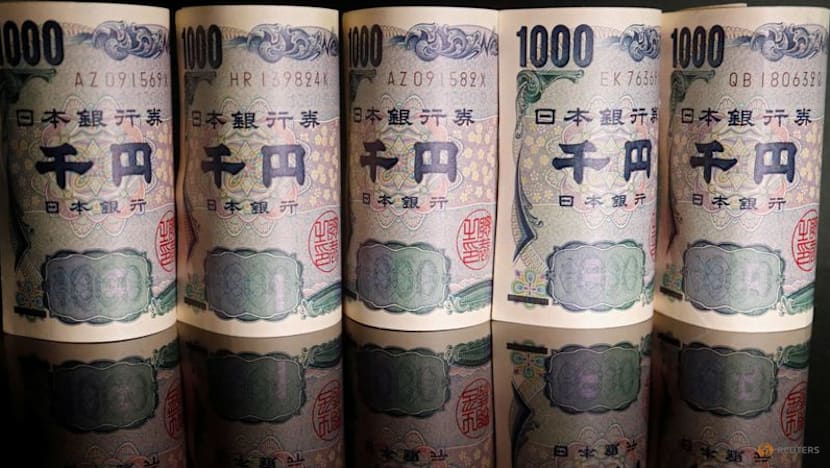Japan's new economy minister says weak yen has benefits to growth

Banknotes of Japanese yen are seen in this illustration picture taken on Sep 23, 2022. (Photo: REUTERS/Florence Lo)
TOKYO: Japan's new economic revitalisation minister, Minoru Kiuchi, said on Tuesday (Oct 28) a weak yen has benefits to the economy and its demerits could be addressed by swiftly compiling a package of steps to ease the pain from rising living costs.
He also said the new administration's priority would be to accelerate economic growth, so that the benefits of its recovery can be delivered to a broader population.
The remarks highlight the focus Prime Minister Sanae Takaichi's administration puts on reflating the economy through expansionary fiscal policy, a contrast to the closer attention her predecessor placed on inflationary risks from a weak yen.
"A weak yen pushes up import costs and domestic prices, which in turn effectively weighs on the purchasing power of households and some companies," Kiuchi told a news conference.
"But there are also merits such as the boost it gives to exporters' profits and domestic investment," he said, adding that it was important for exchange rates to move stably reflecting fundamentals.
NEW ADMINISTRATION, NEW PRIORITIES
A weak yen has become a political headache for policymakers in recent years as it pushes up import costs and broader inflation, which has remained above the Bank of Japan's 2 per cent target for well over three years.
The BOJ's exit from a decade-long, massive stimulus in 2024, and two interest rate hikes through January, came amid political calls for action to combat sharp yen falls.
Markets widely expect the central bank to keep interest rates steady at 0.5 per cent at its two-day policy meeting ending on Thursday, and await more clarity on the new administration's policies before lifting borrowing costs to 0.75 per cent.
"We will continue to closely monitor the impact of currency moves on Japan's economy," Kiuchi said. "As for the rising cost of living, we'll deal with that by compiling a comprehensive economic package," he added.
Known as a fiscal dove, Takaichi is preparing an economic package that is likely to exceed last year's US$92 billion to help households tackle inflation, sources have told Reuters.
While being mindful of the need for fiscal discipline, Japan can boost its long-term potential growth by stimulating demand and keeping the labour market tight, Kiuchi said.
There are varying views on how much excess demand is desirable for Japan's economy, which is why the government and BOJ are scrutinising inflation and wage developments, he added.
Japanese share prices have soared on market expectations of big spending by Takaichi, though some analysts warn of the strain her plans add to the country's already dire finances.
Moody's Ratings affirmed Japan's A1 debt rating on Monday, citing rising tax revenues backed by resilient domestic demand and solid nominal economic growth.
But the International Monetary Fund has warned that any spending must be targeted and temporary.
"Japan's economy will go back to potential growth. They don't need to provide (stimulus)," Krishna Srinivasan, director of the IMF's Asia and Pacific Department, told Reuters.















